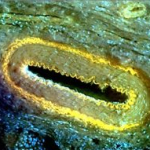
UC Davis announced today the recipients of nine proof-of-concept grants totaling $328,000 for campus innovators to advance their research and technologies towards commercialization. These grants and the associated review process are managed by UC Davis Venture Catalyst through the Science Translation and Innovative Research (STAIRTM) grant program, which is in its fourth year, and the newly launched Data, Informatics and Application Launch (DIALTM) grant program.
“It remains the responsibility of public universities like UC Davis, to fulfil their societal mission of generating impact from research, by facilitating the translation of faculty and student research into meaningful products and services that enrich the human experience,” said Dushyant Pathak, associate vice chancellor for research and executive director of Venture Catalyst at UC Davis. “Through our successful STAIR grant program and the newly launched DIAL grants, we are enabling our most innovative campus researchers to map a more effective path from their scientific and engineering breakthroughs to the commercial sphere.”
The 2017 STAIR grant recipients
The STAIR grant program provides awards of up to $50,000 per grant recipient to help campus innovators demonstrate proof-of-concept and commercial feasibility of their technologies. A total of 30 applications were received this year. Six award recipients were selected to receive grants following a multistage review process involving external industry experts, investors and entrepreneurs that evaluated each application based on its market potential, technical merit and ability to achieve identified commercialization milestones with the funds requested.
This year’s STAIR grant recipients are:
 Johnathon Anderson, assistant professor, Stem Cell Research Program
Johnathon Anderson, assistant professor, Stem Cell Research Program
Anderson and his team have developed a novel drug candidate platform for inflammatory diseases that offers the beneficial aspects of stem cell therapeutics with fewer hurdles to clinical development.
 Paul Henderson, associate adjunct professor, Department of Internal Medicine
Paul Henderson, associate adjunct professor, Department of Internal Medicine
Henderson and his team are developing an add-on chemotherapy drug that increases the effectiveness of existing treatment regimens for advanced bladder cancer. Their innovation, an orally bioavailable drug, combines anti-inflammatory and anti-angiogenic properties.
 Lee Miller, associate professor, Center for Mind and Brain
Lee Miller, associate professor, Center for Mind and Brain
Miller and his team have developed a powerful electroencephalogram (EEG) diagnostic that provides a rapid and comprehensive assessment of the functional health of the auditory system, including how speech is processed at different levels and how these levels interact. Their innovation is expected to enable individualized assessments of hearing loss and improve the performance of assistive listening devices.
 David Olson, assistant professor, Department of Chemistry
David Olson, assistant professor, Department of Chemistry
Olson and his team have discovered how to decouple the beneficial effects of neuroplasticity-promoting compounds from their deleterious hallucinogenic and psychostimulant effects in order to develop more effective drug therapies for various neurological disorders.
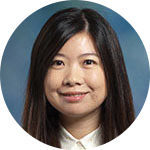 Lin Tian, assistant professor, Department of Biochemistry and Molecular Medicine
Lin Tian, assistant professor, Department of Biochemistry and Molecular Medicine
Tian and her team have developed a novel technology for drug discovery involving G-protein-coupled receptors (GPCRs). Their innovation directly tackles GPCR confrontational dynamics in living cells and organisms, providing a novel platform for rigorous high-throughput cell-based screening and validation.
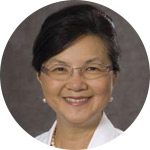 Yu-Jui (Yvonne) Wan, vice chair for research, Department of Pathology and Laboratory Medicine
Yu-Jui (Yvonne) Wan, vice chair for research, Department of Pathology and Laboratory Medicine
Wan and her team are developing a bio-encapsulation process using yeast to deliver retinoic acid and a short-chain fatty acid with histone deacetylase (HDAC) inhibitory properties that benefit the liver and intestine — offering the potential to help prevent and treat metabolic-associated diseases and cancer.
The 2017 DIAL grant recipients
The DIAL grant program is a pilot program structured similarly to the STAIR grant program, which targets commercial opportunities in software, informatics and data science. This program is enabled by funding provided by the State of California under Assembly Bill AB 2664. Passed in 2016, this unique legislation authorizes one-time funding of $2.2 million to each of the 10 University of California campuses with the objective of expanding innovation and entrepreneurship programs on each campus. Three DIAL grant recipients were selected following a review process modeled on the STAIR grant program, based on each project’s market potential, technical merit and ability to achieve identified commercialization milestones with the funds requested.
The DIAL grant award recipients are:
 Petr Janata, professor, Department of Psychology
Petr Janata, professor, Department of Psychology
Janata has invented an online platform that allows users to document and share personal memories they associate with specific pieces of music. Janata’s technology platform leverages his research in the field of cognitive neuroscience and the psychology of music to enable a number of life enriching applications linking music, memory and interpersonal interactions.
 Nelson Max, distinguished professor, Department of Computer Science
Nelson Max, distinguished professor, Department of Computer Science
Max and his team have developed a novel system for use in emergency response training where emergency scenarios can be added to real world environments. His invention uses a quadcopter camera that will add computer-generated artificial reality graphic image components to a computer screen.
 Lisa Miller, professor, Department of Human Ecology
Lisa Miller, professor, Department of Human Ecology
Miller and her team have invented a gaming app to teach nutrition concepts, practice food-choice skills, build nutritional literacy and promote healthy behavior-change in adults to combat poor dietary habits.
Benefits extend beyond financial awards
In addition to the financial support, each recipient of STAIR and DIAL grants is assigned an experienced business mentor to review project milestones, offer commercialization guidance, provide business advice, and facilitate networking opportunities and connections to industry. Additionally, through a collaboration between Venture Catalyst and the UC Davis Mike and Renee Child Institute for Innovation & Entrepreneurship, and enabled by the State of California’s AB 2664 Innovation and Entrepreneurship expansion funding, STAIR and DIAL grant teams will participate in commercialization clinics that will provide them with business and commercialization guidance and skills development.
“The direct interface between grant recipients and experienced industry experts, along with accompanying cohort-based skills development and training, is a critical element of the success of these proof-of-concept grant programs in de-risking UC Davis technologies and moving them closer to commercial uptake and societal impact,” said Pathak. “We are proud of our close collaboration with the Institute for Innovation & Entrepreneurship and grateful to our external industry review panel and participants in the STAIR and DIAL mentor engagement programs.”
Future awards
The application process for next year’s STAIR grant will begin in early 2018 and will be open to anyone with principal investigator status at UC Davis. Postdoctoral scholars and staff are eligible to apply as co-principal investigators. The DIAL grant program offering in subsequent years is yet to be determined and will be announced as soon as a decision has been made.
Media contact

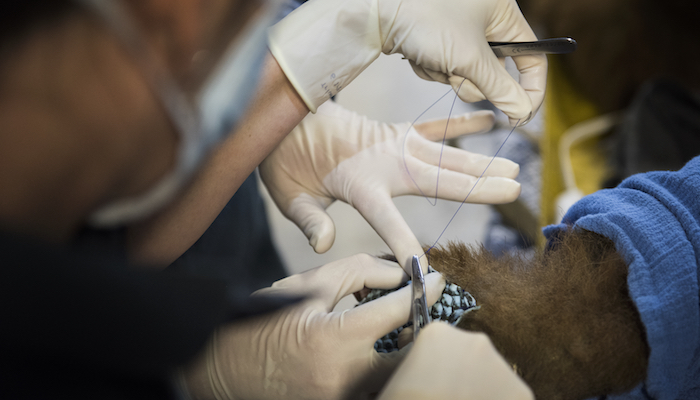

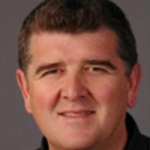

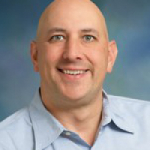

 Johnathon Anderson, assistant professor, Stem Cell Research Program
Johnathon Anderson, assistant professor, Stem Cell Research Program Paul Henderson, associate adjunct professor, Department of Internal Medicine
Paul Henderson, associate adjunct professor, Department of Internal Medicine Lee Miller, associate professor, Center for Mind and Brain
Lee Miller, associate professor, Center for Mind and Brain David Olson, assistant professor, Department of Chemistry
David Olson, assistant professor, Department of Chemistry Lin Tian, assistant professor, Department of Biochemistry and Molecular Medicine
Lin Tian, assistant professor, Department of Biochemistry and Molecular Medicine Yu-Jui (Yvonne) Wan, vice chair for research, Department of Pathology and Laboratory Medicine
Yu-Jui (Yvonne) Wan, vice chair for research, Department of Pathology and Laboratory Medicine Petr Janata, professor, Department of Psychology
Petr Janata, professor, Department of Psychology Nelson Max, distinguished professor, Department of Computer Science
Nelson Max, distinguished professor, Department of Computer Science Lisa Miller, professor, Department of Human Ecology
Lisa Miller, professor, Department of Human Ecology
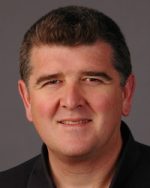 Gino Cortopassi, professor, Department of Molecular Biosciences; Alexey Tomilov, assistant project scientist, Department of Molecular Biosciences
Gino Cortopassi, professor, Department of Molecular Biosciences; Alexey Tomilov, assistant project scientist, Department of Molecular Biosciences


